RESOURCES
Studies
AHCC® Research Association is dedicated to providing the latest information on AHCC® to ensure consumers understand what AHCC® is, how it works, news articles, and studies on its clinically-proven efficacy in addressing a wide range of ailments.
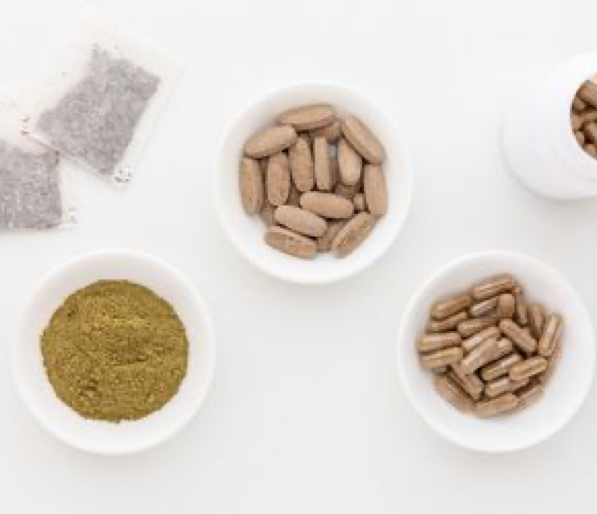
Tested & Proven Studies by Ailment
Cancer
Cardiovascular Disease
Chemotherapy
HPV
Diabetes
Books
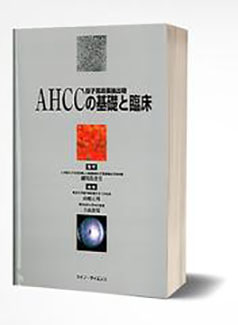
Foundation and Clinical Study of AHCC
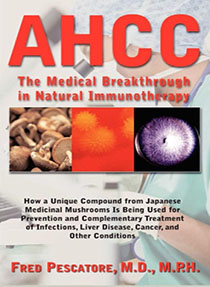
Dr. Fred Pescatore – Clinician Books
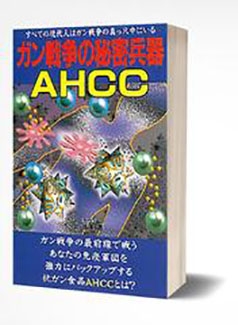
AHCC
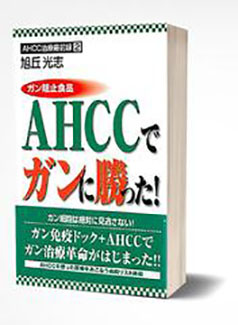
Conquered Cancer With AHCC

This is How Much AHCC Can Fight Against Cancer!
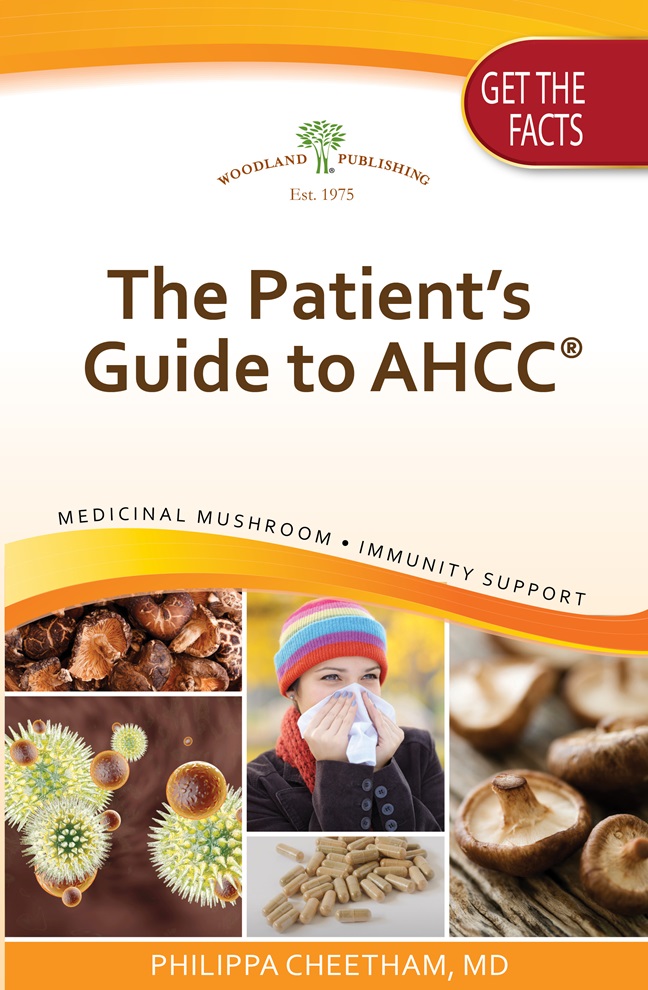
Consumer Books AHCC
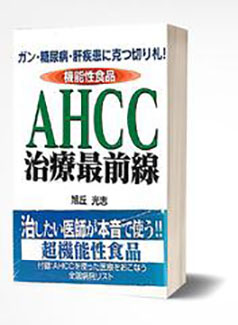
Triumph Over Cancer, Diabetes and Liver Disease!
Description
B and T cells: Both B cells (which mature in bone marrow) and T cells (which mature in the thymus) are lymphocytes, WBC that are able to recognize previous invaders and destroy them with a specific response
Studies
-
Cancer
-
Herpes
-
HPV
-
Chemo side-effects
-
Liver
-
Healthy Adults
-
Immunity
-
All
Overview
AHCC has been used with great success in cancer patients. Data from the treatment of over 100,000 individuals with various types of cancer have shown AHCC treatment to be of benefit in 60% of cases. (Kenner p. 15) AHCC is particularly effective for liver, lung, stomach, colon, breast, thyroid, ovarian, testicular, tongue, kidney and pancreatic cancers. (Kenner p. 15)
One landmark AHCC trial enrolled 269 patients with liver cancer. Following surgery, about half of the patients took AHCC and about half did not. The results were dramatic: At the end of the ten-year study, only 34.5% of the AHCC patients experienced a recurrence in their cancer, compared with 66.1% of the control group. Similarly, while 46.8% of the patients in the control group had died at the end of ten years, less than half that amount — 20.4% — of those in the AHCC group had. Another study found that AHCC not only prolonged survival of advanced liver cancer patients, it also improved various parameters of quality of life, including mental stability, general physical health status and the ability to have normal activities.
| Subject | Publication | Downloads | Summary |
|---|---|---|---|
| AHCC® Promotes the Anti-Tumor Effect of Dual Immune Checkpoint Blockade Effect in Murine Colon Cancer | Frontiers in Immunology | Read More | |
| Can AHCC be used in the treatment of head and neck cancer patients? | International Journal of Clinical Medicine, 2, 588-592 (2011) |  |
 |
| Can AHCC improve the prognosis of hepatocellular carcinoma (HCC) patients following surgical treatment? | Journal of Hepatology |  |
 |
| Does AHCC have an effect on castration-resistant prostate cancer (CRPC)? | Anti-Cancer Drugs 2009, 20: 215-216 |  |
 |
| Does AHCC have an effect on patients with advanced breast cancer? | International Journal of Integrative Oncology |  |
 |
| Does AHCC have an effect on patients with advanced liver cancer? | Asian Pacific Journal of Allergy and Immunology |  |
 |
| Does AHCC have an effect on patients with early stage prostate cancer? | Japanese Journal of Clinical Oncology. |  |
 |
| Does AHCC have an effect on patients with pancreatic or biliary tract cancer who underwent chemotherapy? | Presented at the 40th APA (American Pancreatic Association) |  |
 |
| Does AHCC have an effect on the survival rate of patients with gastric cancer or colon cancer? | Natural Medicine Journal. |  |
 |
| Does AHCC have immunomodulatory and anticancer effects in cancer patients? | International Journal of Immunotherapy |  |
 |
| Does AHCC in combination with GCP extend survival and quality of life in stage IV lung and breast cancer patients? | 16th AHCC Research Association, November 2008 |  |
 |
| What have been some clinical experiences with AHCC and cancer? | Biotherapy 2000; 14(10): 959-964 |  |
 |
| Which out of four dietary supplements commonly sold in health food stores can consistently and statistically affect NK cell activity in cancer patients? | Townsend Letter for Doctors and Patients February/March 2003 |  |
 |
Overview
Herpes viruses are a family of viral infections that remain dormant in the body and can reactivate periodically. Unlike many other viruses, herpesviruses include multiple types that can cause a range of health issues. The most common types affecting humans are Herpes Simplex Virus type 1 (HSV-1), which typically causes oral herpes, and Herpes Simplex Virus type 2 (HSV-2), which usually causes genital herpes. Other members of the herpesvirus family include Epstein-Barr Virus (EBV, also known as Human Herpesvirus 4), associated with mononucleosis and certain cancers, and Human Herpesvirus 6 (HHV-6), linked to roseola and some neurological conditions. As we have seen with other infection-based AHCC studies, research studies suggest that AHCC supplementation may support the immune system’s fight against herpesvirus infections. Preliminary evidence and research on immune modulation indicate that AHCC may help the body suppress viral activity, which could reduce the frequency or severity of outbreaks. Additionally, by enhancing immune function, AHCC supplementation may support the body’s ability to keep herpesvirus infections in their dormant state and lower the risk of virus-related complications.
Overview
Human Papillomavirus (HPV) is a viral infection. Unlike most other viruses, HPV has high-risk strains that are known to cause cancers. As we have seen with other infection-based AHCC studies, clinical results suggest that AHCC supplementation supports the immune system’s fight against Human Papillomavirus (HPV) infections. In the majority of cases, AHCC cleared existing HPV infections making the virus undetectable. Additionally, the use of AHCC supplementation may help prevent HPV-associated cancers from developing if the body successfully clears the initial infection.
Overview
Chemotherapy is fraught with side effects, which range from psychologically distressing to life-threatening. In addition to being able to fight cancer directly, AHCC also alleviates many of the side effects of chemotherapy, including:
- Hair Loss: Doctors noticed that chemotherapy patients taking AHCC did not lose their hair. Subsequently, an in vivo study found that mice treated with AHCC were protected from chemically induced hair loss.
- Nausea: Clinical studies in Korea and Japan have indicated that AHCC remarkably improves symptoms of nausea and vomiting in cancer patients. (Kenner, p. 18)
- Bone Marrow Suppression: Chemotherapy can inhibit bone marrow function, which is life-threatening because the body’s key immune soldiers — the white blood cells — originate in bone marrow. AHCC has been shown to raise the white blood cell count of cancer patients by about 30%. (Kenner, p. 17)
- Liver Damage: One of the major drawbacks of chemotherapy is that it kills healthy cells in addition to cancer cells. An in vivo study found that while rats given chemotherapy experienced large increases in liver enzymes (indicative of liver damage), those given chemotherapy plus AHCC had normal levels. (Kenner, p. 17)
Overview
Dr. Fred Pescatore, of the Center for Integrative and Complementary Medicine in New York, has reported that he has achieved marked reductions in the liver enzymes of hepatitis patients through the use of AHCC. This is an important discovery, as high levels of liver enzymes are indicative of liver damage. Dr. Pescatore has also observed massive drops in the viral loads of hepatitis C patients. One case study, a 47 year-old male, had a viral load of 2,498,200 before treatment, which plunged to 499,600 after six months on AHCC — an 80% reduction.
Animal studies confirm AHCC’s liver-protective effect. Rats treated with AHCC and then administered the liver-toxic chemical carbon tetrachloride were spared from its liver-damaging effect. Similarly, rats treated with AHCC and then administered the lethal substance galactosamine had an improved survival rate compared to control rats. (Kenner, p. 19).
Overview
Dr. Fred Pescatore, of the Center for Integrative and Complementary Medicine in New York, has reported that he has achieved marked reductions in the liver enzymes of hepatitis patients through the use of AHCC. This is an important discovery, as high levels of liver enzymes are indicative of liver damage. Dr. Pescatore has also observed massive drops in the viral loads of hepatitis C patients. One case study, a 47 year-old male, had a viral load of 2,498,200 before treatment, which plunged to 499,600 after six months on AHCC — an 80% reduction.
Animal studies confirm AHCC’s liver-protective effect. Rats treated with AHCC and then administered the liver-toxic chemical carbon tetrachloride were spared from its liver-damaging effect. Similarly, rats treated with AHCC and then administered the lethal substance galactosamine had an improved survival rate compared to control rats. (Kenner, p. 19).
AHCC AND IMMUNITY
There have been numerous studies on AHCC’s effect on the immune system. Is it safe for adults with healthy immune systems? Is it safe to use for immunocompromised individuals? Can AHCC be used as immunotherapy? The following studies address these questions and more when it comes to AHCC’s impact on our immune systems.